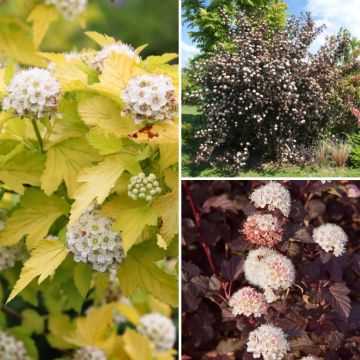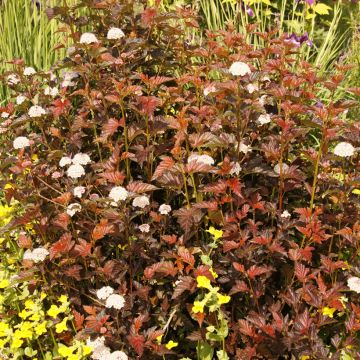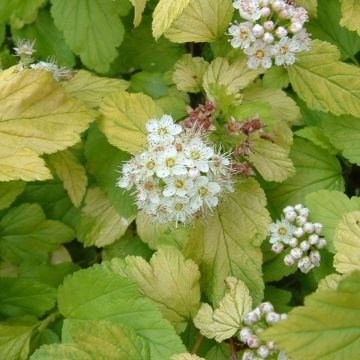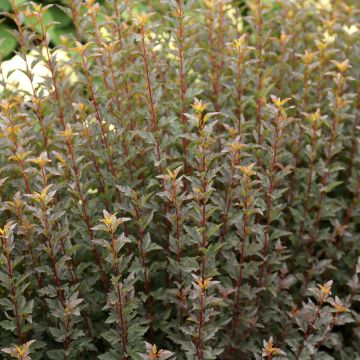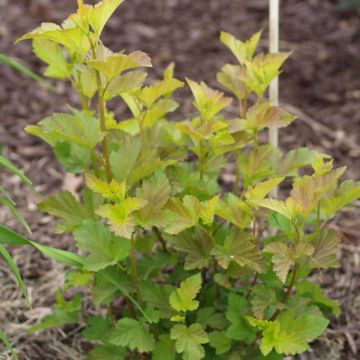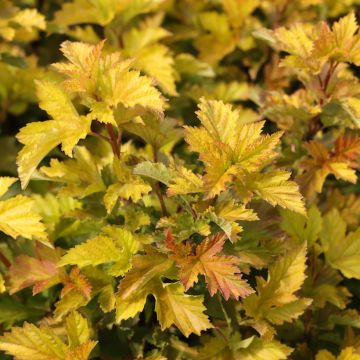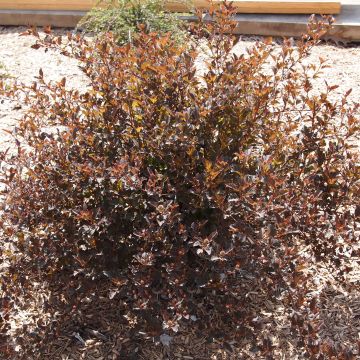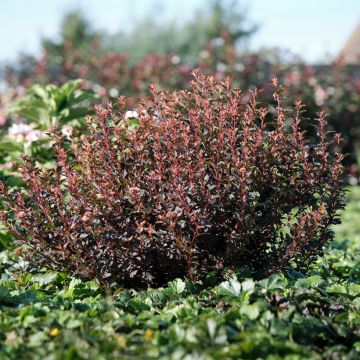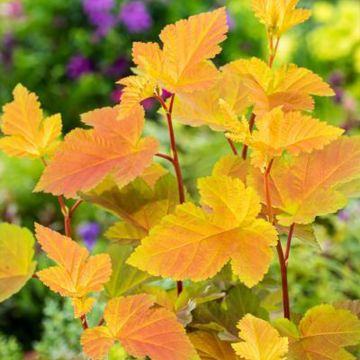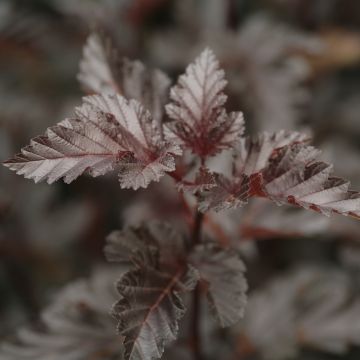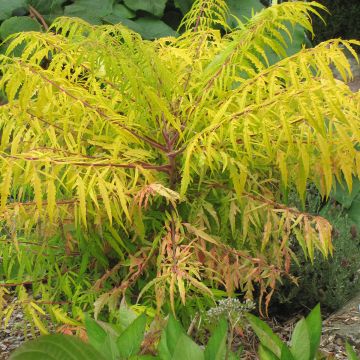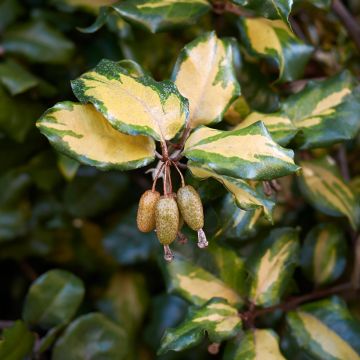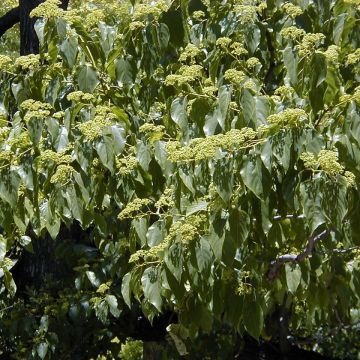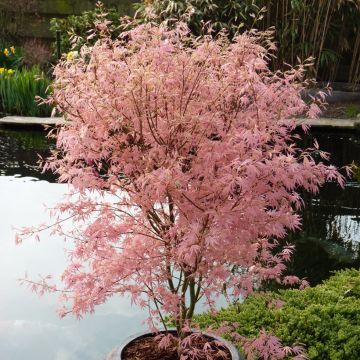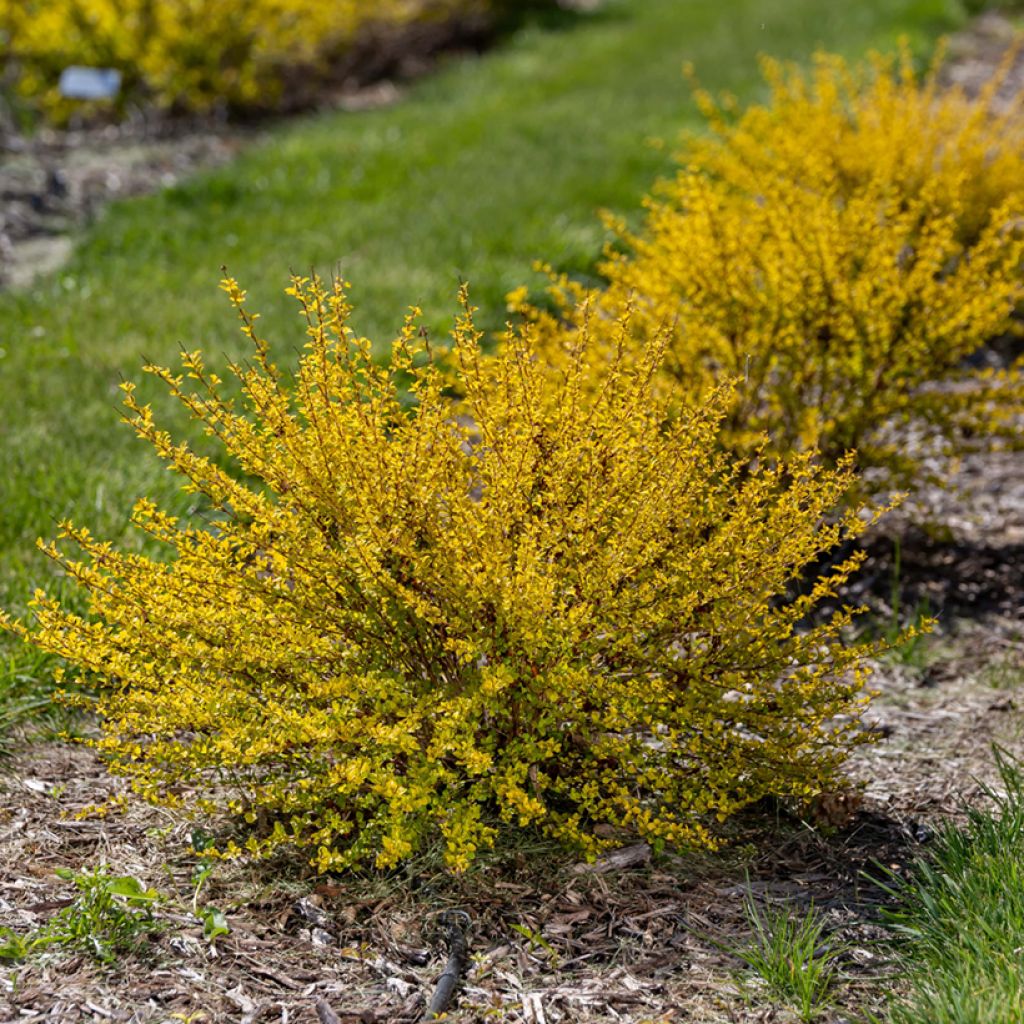

Physocarpus opulifolius Lucky Devil
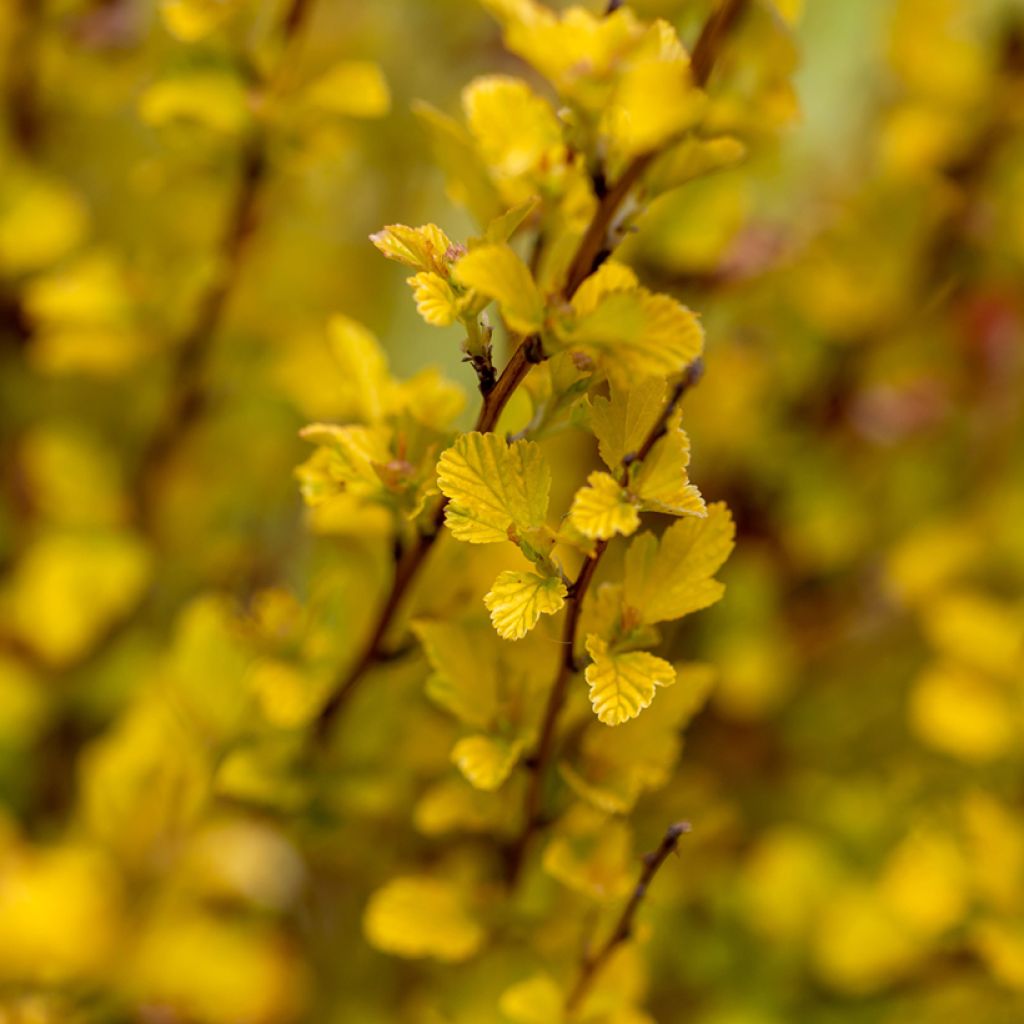

Physocarpus opulifolius Lucky Devil
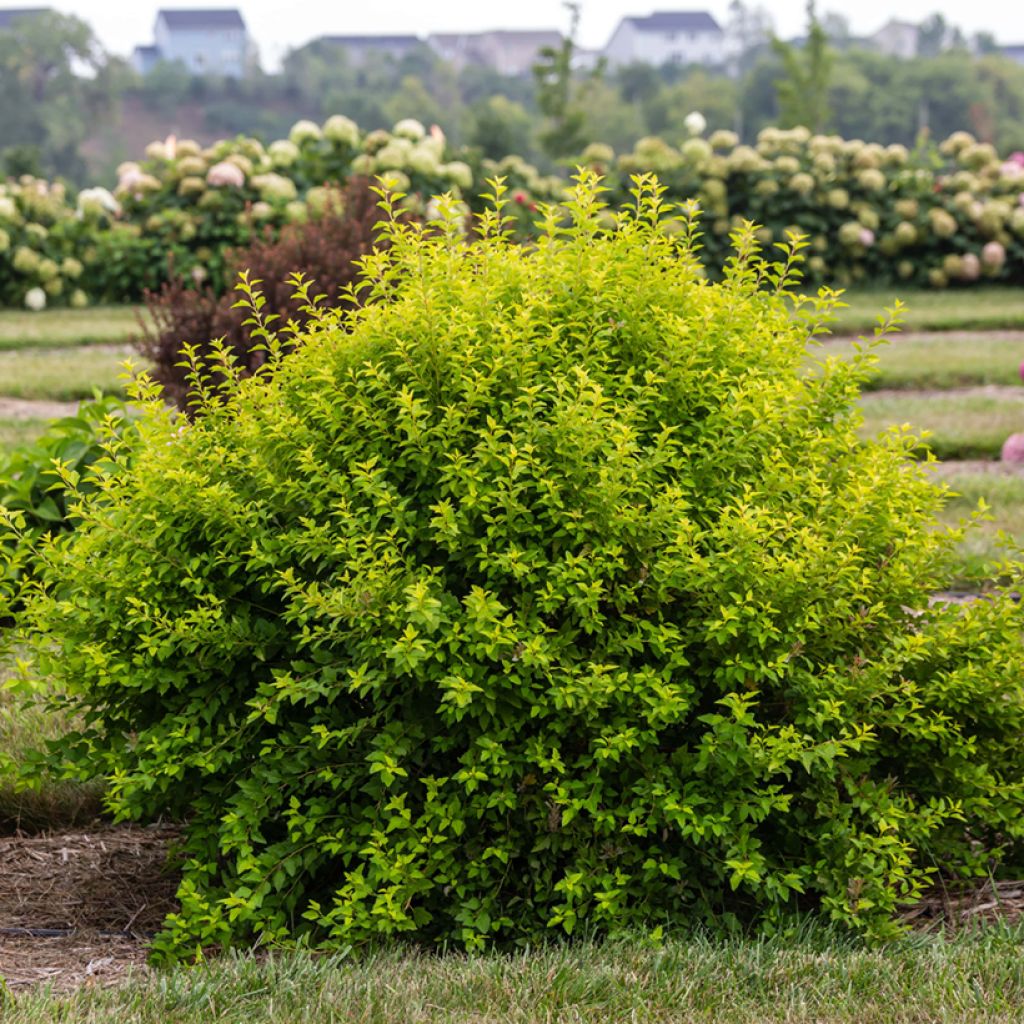

Physocarpus opulifolius Lucky Devil
Physocarpus opulifolius Lucky Devil
Physocarpus opulifolius 'ZLEMichael' Lucky Devil®
Ninebark, Eastern Ninebark, Common Ninebark, Atlantic Ninebark, ZLEMichael
Special offer!
Receive a €20 voucher for any order over €90 (excluding delivery costs, credit notes, and plastic-free options)!
1- Add your favorite plants to your cart.
2- Once you have reached €90, confirm your order (you can even choose the delivery date!).
3- As soon as your order is shipped, you will receive an email containing your voucher code, valid for 3 months (90 days).
Your voucher is unique and can only be used once, for any order with a minimum value of €20, excluding delivery costs.
Can be combined with other current offers, non-divisible and non-refundable.
Home or relay delivery (depending on size and destination)
Schedule delivery date,
and select date in basket
This plant carries a 24 months recovery warranty
More information
We guarantee the quality of our plants for a full growing cycle, and will replace at our expense any plant that fails to recover under normal climatic and planting conditions.
Would this plant suit my garden?
Set up your Plantfit profile →
Description
Physocarpus opulifolius 'Lucky Devil', also known as 'ZLEMichael', is a variety of colourful golden Physocarpus whose foliage does not turn green in summer and orange in autumn. It is a small deciduous bush with a golden coat offering beautiful white flowering in June. Combine it with dark or bluish foliage in shrub borders. In moist soil, it requires little maintenance!
The Physocarpus opulifolius 'Lucky Devil' is a recent horticultural creation. Its wild ancestor, the Ninebark with Obier leaves, is a bush from the rose family native to the eastern United States, spreading as far as Quebec and Manitoba. 'Lucky Devil' has a medium to fast growth rate and will not exceed 1.20 m in all directions when fully grown. Its habit is very bushy, slightly spreading with age. The young stems are tender green in spring; then they turn brown. This selection is remarkable for the yellow colour of its leaves, which does not fade under the summer sun. Before falling in autumn, they turn orange. The leaves are lobed, deeply cut, crenate, and measure from 3 to 8 cm. Flattened corymbs adorned with buds appear in May-June, which open into small white nectariferous flowers. They are followed by a few red fruits appreciated by birds in autumn. The bush remains decorative in winter, with its bark peeling off in beige to reddish-brown patches.
The 'Lucky Devil' Ninebark will find its place in shrub borders or large borders. Its golden foliage contrasts pleasantly with purple, red or "black" Ninebarks: 'All Black', 'Little Devil' or 'Lady in Red'. It will also be charming, with white-flowering spireas, shrubby artemisias, and grey foliage like Powis Castle. Dark Heucheras like 'Black Pearl' can be planted at its base to accompany its unique foliage. It will also significantly impact when grown in a container on a terrace or balcony.
Report an error about the product description
Plant habit
Flowering
Foliage
Botanical data
Physocarpus
opulifolius
'ZLEMichael' Lucky Devil®
Rosaceae
Ninebark, Eastern Ninebark, Common Ninebark, Atlantic Ninebark, ZLEMichael
Cultivar or hybrid
Other Physocarpus
View all →Planting and care
Plant the Physocarpus opulifolius 'Lucky Devil' in deep, humus-bearing, fertile, moist soil, preferably neutral to slightly acidic. It fears an excess of limestone. It is necessary to avoid letting the soil dry in summer and shower the foliage during heatwaves. This bush will thrive in partial shade or the sun, but the foliage will be more colourful in the sun. It is a bush of cold to temperate climate easily cultivated in many regions.
Planting period
Intended location
Care
This item has not been reviewed yet - be the first to leave a review about it.
Similar products
Haven't found what you were looking for?
Hardiness is the lowest winter temperature a plant can endure without suffering serious damage or even dying. However, hardiness is affected by location (a sheltered area, such as a patio), protection (winter cover) and soil type (hardiness is improved by well-drained soil).

Photo Sharing Terms & Conditions
In order to encourage gardeners to interact and share their experiences, Promesse de fleurs offers various media enabling content to be uploaded onto its Site - in particular via the ‘Photo sharing’ module.
The User agrees to refrain from:
- Posting any content that is illegal, prejudicial, insulting, racist, inciteful to hatred, revisionist, contrary to public decency, that infringes on privacy or on the privacy rights of third parties, in particular the publicity rights of persons and goods, intellectual property rights, or the right to privacy.
- Submitting content on behalf of a third party;
- Impersonate the identity of a third party and/or publish any personal information about a third party;
In general, the User undertakes to refrain from any unethical behaviour.
All Content (in particular text, comments, files, images, photos, videos, creative works, etc.), which may be subject to property or intellectual property rights, image or other private rights, shall remain the property of the User, subject to the limited rights granted by the terms of the licence granted by Promesse de fleurs as stated below. Users are at liberty to publish or not to publish such Content on the Site, notably via the ‘Photo Sharing’ facility, and accept that this Content shall be made public and freely accessible, notably on the Internet.
Users further acknowledge, undertake to have ,and guarantee that they hold all necessary rights and permissions to publish such material on the Site, in particular with regard to the legislation in force pertaining to any privacy, property, intellectual property, image, or contractual rights, or rights of any other nature. By publishing such Content on the Site, Users acknowledge accepting full liability as publishers of the Content within the meaning of the law, and grant Promesse de fleurs, free of charge, an inclusive, worldwide licence for the said Content for the entire duration of its publication, including all reproduction, representation, up/downloading, displaying, performing, transmission, and storage rights.
Users also grant permission for their name to be linked to the Content and accept that this link may not always be made available.
By engaging in posting material, Users consent to their Content becoming automatically accessible on the Internet, in particular on other sites and/or blogs and/or web pages of the Promesse de fleurs site, including in particular social pages and the Promesse de fleurs catalogue.
Users may secure the removal of entrusted content free of charge by issuing a simple request via our contact form.
The flowering period indicated on our website applies to countries and regions located in USDA zone 8 (France, the United Kingdom, Ireland, the Netherlands, etc.)
It will vary according to where you live:
- In zones 9 to 10 (Italy, Spain, Greece, etc.), flowering will occur about 2 to 4 weeks earlier.
- In zones 6 to 7 (Germany, Poland, Slovenia, and lower mountainous regions), flowering will be delayed by 2 to 3 weeks.
- In zone 5 (Central Europe, Scandinavia), blooming will be delayed by 3 to 5 weeks.
In temperate climates, pruning of spring-flowering shrubs (forsythia, spireas, etc.) should be done just after flowering.
Pruning of summer-flowering shrubs (Indian Lilac, Perovskia, etc.) can be done in winter or spring.
In cold regions as well as with frost-sensitive plants, avoid pruning too early when severe frosts may still occur.
The planting period indicated on our website applies to countries and regions located in USDA zone 8 (France, United Kingdom, Ireland, Netherlands).
It will vary according to where you live:
- In Mediterranean zones (Marseille, Madrid, Milan, etc.), autumn and winter are the best planting periods.
- In continental zones (Strasbourg, Munich, Vienna, etc.), delay planting by 2 to 3 weeks in spring and bring it forward by 2 to 4 weeks in autumn.
- In mountainous regions (the Alps, Pyrenees, Carpathians, etc.), it is best to plant in late spring (May-June) or late summer (August-September).
The harvesting period indicated on our website applies to countries and regions in USDA zone 8 (France, England, Ireland, the Netherlands).
In colder areas (Scandinavia, Poland, Austria...) fruit and vegetable harvests are likely to be delayed by 3-4 weeks.
In warmer areas (Italy, Spain, Greece, etc.), harvesting will probably take place earlier, depending on weather conditions.
The sowing periods indicated on our website apply to countries and regions within USDA Zone 8 (France, UK, Ireland, Netherlands).
In colder areas (Scandinavia, Poland, Austria...), delay any outdoor sowing by 3-4 weeks, or sow under glass.
In warmer climes (Italy, Spain, Greece, etc.), bring outdoor sowing forward by a few weeks.






























